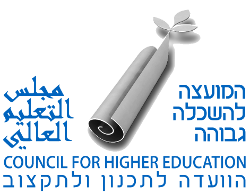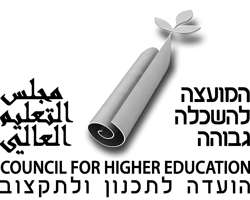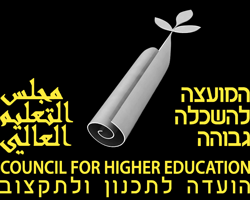The CHE Is Expanding Bilingual Hebrew and English Academic Programs
The CHE has updated its decisions regarding conversion of academic educational programs from Hebrew to English and to run them in parallel to each other.
The updated decisions include, inter alia, the following emphases:
- Academic institutions will be able to convert existing degree programs (bachelor’s or master’s) from Hebrew to English. These institutions will submit an application to convert the program to the CHE, while the Hebrew language programs will continue to operate as usual.
- Institutions that have the autonomy to open master’s degree study programs will be able to convert degree programs (bachelor’s or master’s) as well as to open joint study programs together with institutions overseas without requiring the CHE’s approval.
- English language study programs will be taught alongside Hebrew language programs and shall be identical in academic level and scope to Hebrew language study programs.
- The CHE emphasizes the centrality of the Hebrew language in Israel as the national language and the need to maintain Hebrew language courses of study that are currently offered at institutions of higher education.
PBC Chair, Prof. Yaffa Zilbershats: “The PBC has committed to turning Israel into a magnet for excelling students from various countries around the world: From the Americas, Europe, and the Far East. The focus is primarily on research students and master’s degree students but includes bachelor’s degree students as well. Expansion of English language study programs and their implementation alongside Hebrew language study programs will encourage excelling international students to come to Israel for full and partial degrees. This process will deepen the reciprocal relationships between institutions in Israel and those abroad and will reinforce Israel’s international reputation around the world.”
CHE Deputy Chair, Prof. Ido Perlman: “The increase in the number of international students depends, inter alia, on the existence of English language study programs and the absence of a sufficient number of such programs today; the ability to absorb international students (and international staff) is limited. The updated decision permits institutions to expand their offering of English language programs and joint programs with institutions abroad with greater ease and will encourage them to do so while maintaining academic standards.”
The multiyear plan to reinforce internationalism in higher education is intended to increase the competitive level of Israeli academia by accepting outstanding students from abroad and strengthening the international reputation of Israeli institutions. In addition to this, promotion of internationalism in higher education is extremely important from political (diplomatic ties with foreign countries), social, and economic standpoints, as well as from a Zionist standpoint of opening these institutions to worldwide Jewry and turning Israel into a beacon of academia.
According to PBC data, the percentage of international students studying in Israel currently stands at approximately 1.4%. This percentage is significantly lower than the average in OECD countries, which currently stands at approximately 6%. The low number of international students stems, inter alia, from language difficulties as most instruction at institutions of higher education in Israel is offered in Hebrew.
Similarly, there are political obstacles such as visas and work permits for spouses which delay the ability to open the gates of these institutions to foreign students. Currently, the staff of the CHE and the PBC are working to remove obstacles vis-à-vis the relevant entities within various governmental ministries.
In the framework of this program, quantitative goals have been set for accepting international students such that: In 2022, approximately 24,000 international students are expected to study in Israel as opposed to approximately 11,000 international students in 2017.
Updating the CHE Decision on the Conversion of Study Programs from Hebrew to English:
As we noted, the CHE has updated its decision on the conversion of academic programs to English and opening joint programs in English with institutions abroad. The updated decision has removed bureaucratic obstacles and simplified the process, which had been cumbersome and made it difficult for institutions wishing to convert their academic programs to English to do so. We emphasize that the conversion of academic programs from Hebrew to English will be done while ensuring that the Hebrew language program continues to operate in its regular format without change.
- An institution of higher learning interested in offering an English language course of study which is an adaptation of a parallel program in Hebrew must submit a petition to the CHE to offer this program.
- The program that has been converted to English will be identical in academic level and scope to the Hebrew language program.
- An institution that developed a study program that has been converted to English will ensure that it does not adversely affect students enrolled in programs that are held in Hebrew, including the level of the staff, content, and courses offered.
- Institutions that have been granted autonomy by the CHE to grant master’s degrees will be able to convert existing degree bachelor’s or master’s degree programs from Hebrew to English as well as to open joint study programs together with institutions overseas without first obtaining the CHE’s approval. The Hebrew language program will continue as usual.
- An institution of higher education wishing to obtain approval to offer a converted study program for undergraduate or graduate program in English and to discontinue the parallel Hebrew language program will submit a detailed petition to the CHE to obtain its approval.
- A petition by an institution to offer a new study program in English for which the institution does not offer a parallel Hebrew language program will be reviewed as any other petition to commence a new program of studies, in accordance with CHE and PBC procedures, including an explanation for proposing a program that does not have a Hebrew language parallel.
- In its decision, the CHE emphasizes the centrality of the Hebrew language in Israel as the national language and the need to maintain Hebrew language courses of study that are currently offered at institutions of higher education.
Alongside the conversion of courses to English, the CHE and PBC are continuing to advance additional processes to encourage internationality, including: A branding and marketing process for the Israeli higher education system, assisting institutions of higher education in constructing and executing institutional internationalism strategies, as well as financial incentivization to establish and strengthen the infrastructures required for internationalism.
The Multiyear Budget Plan:
The multiyear budget for reinforcing internationalism in higher education is approximately NIS 435 million. According to the program’s targets, in 2022, approximately 24,000 international students are expected to study in Israel as opposed to approximately 11,000 international students in 2017.
Up until now, the PBC has approved the allocation of approximately NIS 200 million distributed as follows:
1. Approximately NIS 100 million for development of internationalism in institutions of higher education, including, among others:
- Encouraging the development of new study programs in a foreign language (with an emphasis on English).
- Increasing the number of international students enrolled in full degree programs at the institution.
- Enrolling international students for short periods of time – summer courses, study abroad programs, visiting doctoral candidates, etc.
- Imparting international skills to Israeli students and increasing the number of Israeli students attending (an) academic course(s) or participating in an internship abroad as part of the degree program.
- Promoting international research conferences.
2. Approximately NIS 100 million in scholarships for Israeli post-doctoral students enrolled in leading institutions abroad as well as enrolling outstanding doctoral and post-doctoral students from foreign countries, including: The USA, Canada, China, India, and more. An additional NIS 10 million will be allocated for “glue grants” in order to create and deepen research relationships between Israeli researchers and researchers abroad.
Additionally, the PBC is currently working on additional programs in the area of internationalism which will be presented for approval shortly.


